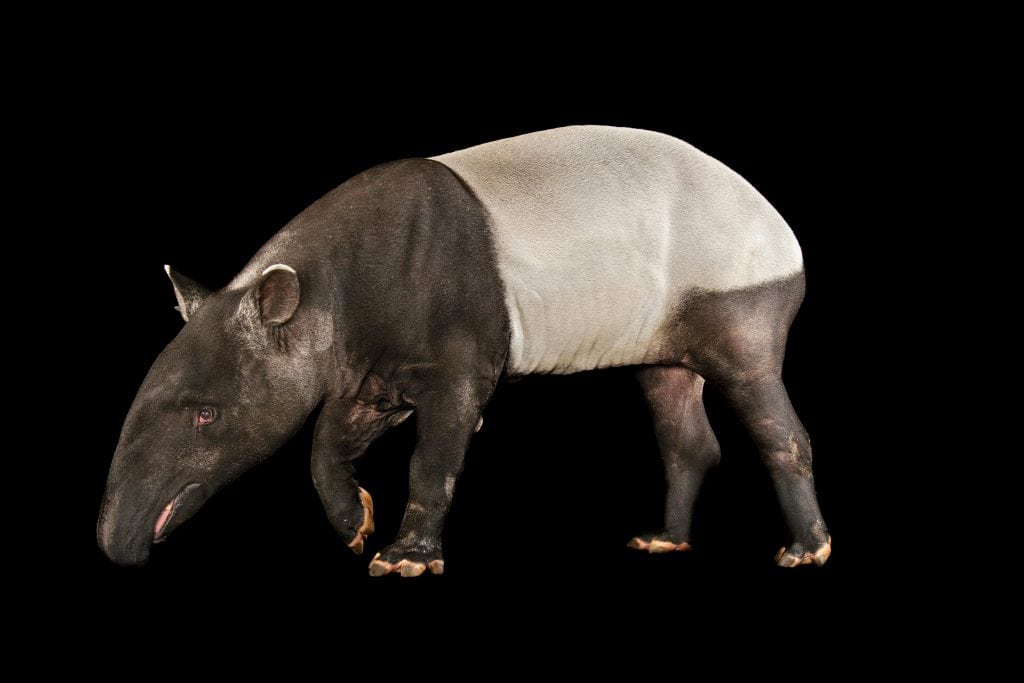They inhabit jungle and forest regions of South America, Central America, and Southeastern Asia. Adaptable to different habitats, tapirs may be found in swamps, forests, savanna, and rainforests. All tapirs prefer wooded or grassy areas with places to shelter during the day and a lake, river, or pond for taking a nighttime dip. The natural lifespan of a tapir is approximately 25 to 30 years, both in the wild and in zoos.
The Malayan tapir (Tapirus indicus) is the largest species of tapir; it is from 1.8 and 2.5 meters (5 ft 11 in and 8 ft 2 in) in length; 90 to 110 centimeters (2 ft 11 in to 3 ft 7 in) in shoulder height; and weight between 250 and 320 kilograms (550 and 710 pounds).

he kabomani tapir (Tapirus kabomani) is the smallest species of tapir; it is roughly 130 centimeters (51 inches) long; 90 centimeters (35 inches) in shoulder height; and weight about 110 kilograms (240 pounds).
The tapir’s nose and upper lip combine into a flexible snout like an elephant’s trunk. They use it to grab leaves from the nearby branches, pick up the fruit from the ground or to find aquatic plant on the bottom of the water.
Tapirs are surprisingly nimble and are excellent at scrambling up steep riverbanks. They can also run and swim. It is thought they walk along river bottoms, much like hippos do.















